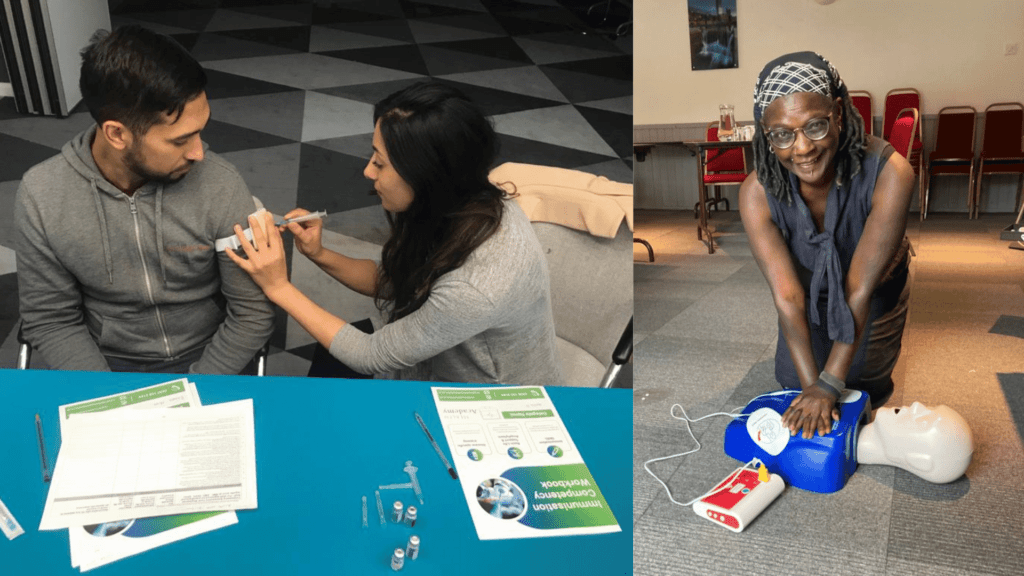
The beauty of working within General Practice is the variety of the day and the queries presented are no exception. As Clinical Pharmacists within Primary Care we have all undoubtedly been faced with the ‘side effect query’ and the deciphering that then follows – upon writing this I have just completed a clinic that seemed solely of this nature! Being equipped with the most up to date and evidence based practice is essential – but finding this information in a timely manner can make an immense impact on the flow of both the consultation as well as the scheduled clinic. As a prescribing pharmacist in Primary Care I have my go to resources which I rely on – and I can guarantee I will use on a weekly if not daily basis! The following are my current top 10:
Red Whale is a subscription based website that provides access to online handbooks with both summary and long form information on different medical conditions and the subsequent medical management. As this is all based on current guidance and is updated regularly as well as being presented in an easy to follow format – I heavily rely on this. It is also very user friendly so for me means that I am more likely to retain this information longer term. Although we may not all have access to this, there are a few factors to bear in mind:

Similar to Red Whale, the NICE Clinical Knowledge Summaries site (CKS) provides summaries of current guidance on medical conditions allowing for both an evidence based and efficient approach.

SPS can be contacted by telephone (0300 770 8564) or email to provide specific advice if you are presented with certain queries in which you are struggling to obtain an answer. Perhaps the query is more nuance? This service can be used by community pharmacists also and as this is not a subscription service wider accessibility for Primary Care.

The EMC is a useful resource as it provides access to both the Patient Information Leaflet (PIL) and the Summary of Product Characteristics (SPC) both of which have a wealth of information which is drug specific. The patient information leaflet has patient specific information on the medication and should be included in all medication boxes. The SPC has a variety of information which is useful for the healthcare professional including drug half life and specifics such as renal excretion.

The BNF Interaction Checker quick and easy way to enter all medication a patient is on to allow for an overview check of interactions. Although further resources may be required following this – it does allow for an efficient overview of potential interactions.
With the ongoing stock shortages of a variety of medication, the Boots Prescription Stock Checker is one of many resources which can support in answering the endless ‘out of stock queries’. What this allows is the ability to see if a particular Boots store in the locality of your choice has stock of the medication needed. Although this is only for Boots store it does help as a starting point to navigate options.

The NEWT guidelines is a resource to support queries regarding administration of medication to patients with enteral feeding tubes or swallowing difficulties. This allows you to consider both the licensed and unlicensed routes of medication administration.
Certain editions are available free of charge online and are beneficial when reviewing patients with Chronic Kidney Disease (CKD) to ensure that the medication dosage is appropriate.
Accessing the local formulary which provides a framework of where prescribing responsibility lies whether it maybe in primary or secondary care or if purchasing over the counter would be recommended.
This was a resource I was introduced to recently by a diabetic nurse. Meds and Kits outlines the main diabetic technologies and medication available in the UK. It also outlines what testing strips are compatible with the variety of meters available. Although this was printed in 2020 hence it should be noted that some information may not be up to date but nonetheless provides a helpful resource in diabetic like queries or reviews.

As pharmacists, the resources we reach out for change as our clinics vary or with national elements (yes I’m thinking of the national shortage of what seems to feel like all medication currently) occurring. How does your current list compare?
Sharing resources is an essential element between Pharmacists but equally between different Healthcare Professionals providing a multidisciplinary team (MDT) like approach and ultimately better patient care.

Enhance your pharmacy skills and knowledge with our comprehensive training courses. Elevate your expertise as a primary care pharmacist or community pharmacist in areas such as Travel Health, Immunisation, Phlebotomy, Sexual Health and many more! Our new Flu courses for the 2024/25 flu season are now available to book. Head to our Pharmacy Course page to find out more.
Giving you written and video content to answer all your questions on primary care education from Phlebotomy to Travel Health.
Subscribe now to be kept updated with our latest posts and insights.
Start typing to search courses, articles, videos, and more.